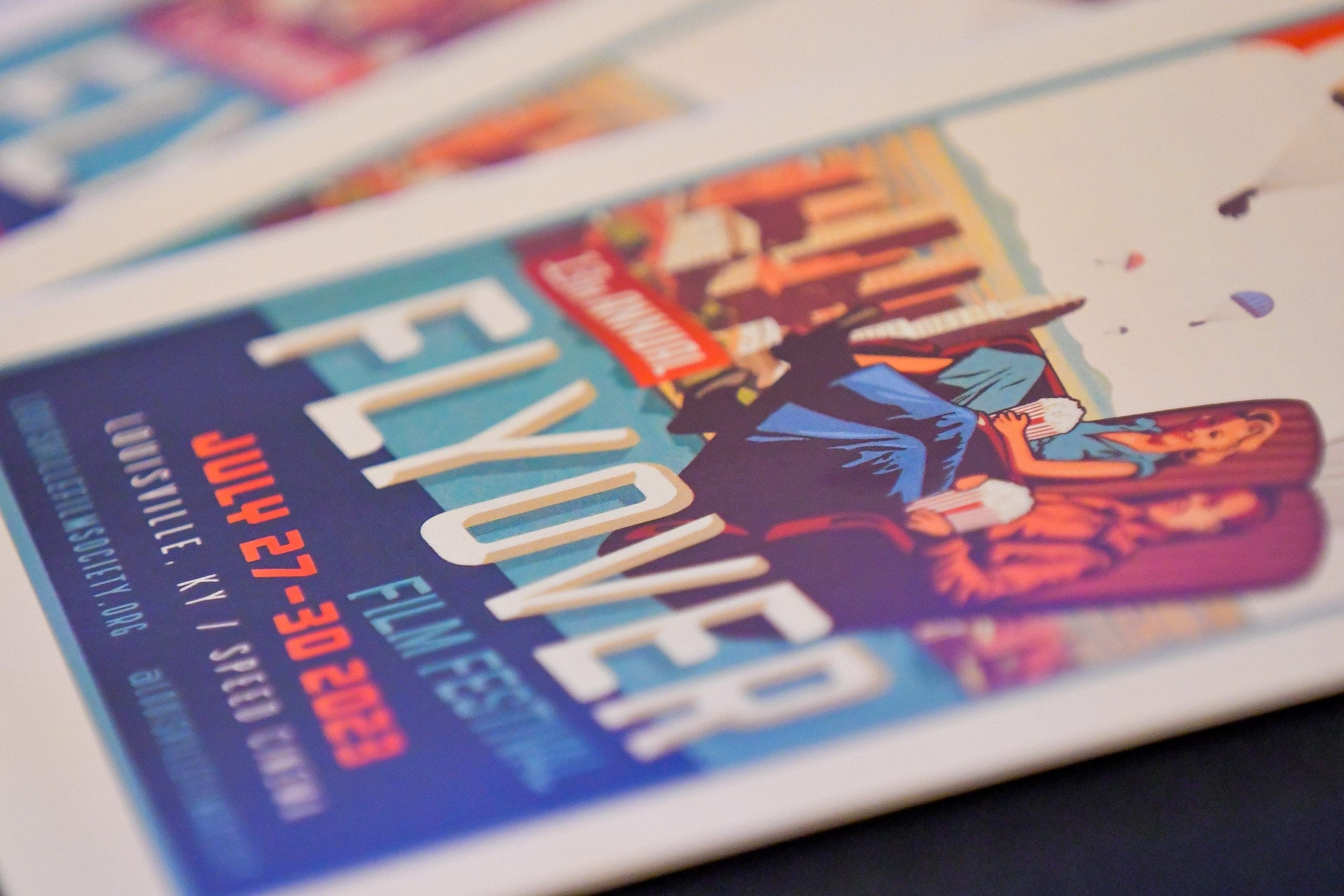Some of the most powerful and engaging movies are packed with rich details and compelling characters, sparking important conversations from viewers and potentially reshaping their perspectives on nuanced subjects. The 2023 Flyover Film Festival, which takes place from July 28-30 at the Speed Cinema, has several thought-provoking and magnetic films that meet that criteria. So, in advance of the festival, we spoke with three directors/creatives about the artistic vision behind the films they’ll be showing at Flyover. Here’s what they had to say.
King Coal
Directed by Elaine McMillion Sheldon
Friday, July 28 | 7 p.m.
Throughout her career, documentary filmmaker Elaine McMillion Sheldon has told challenging stories that revolve around heavy subjects. But, her latest film is deeply personal. “King Coal” is a meditative, complex look at the rapidly-changing coal industry through the eyes of the people of central Appalachia, the region she is from. McMillion Sheldon, who was nominated for an Academy Award in 2018, narrates and directs the film, capturing meaning and subjects with authority and grace.
“I think all of the films that I have done previous to this have prepared me to, I guess, be brave enough, to be vulnerable enough in the same way that people have been vulnerable with me in my previous films,” McMillion Sheldon told Louisville Film Society. “They taught me the importance of honesty so I have just sort of taken a lead from all of the people that I’ve documented.”
“King Coal” is a boundary-pushing, artistic documentary that almost has the feel of a feature film. Instead of traditional interviews, McMillion Sheldon asked the subjects to largely forget about the camera, so the film would feel like a natural, precise look into coal country. Much of the story is told through the eyes of children, which McMillion Sheldon said was meant to show a “reflection of what it means to shape a person’s identity at a young age.” It also mirrors her experience growing up.
The coal industry has been in decline for years, but McMillion Sheldon said that the time was right for the documentary because there’s currently, “a new conversation, there’s an opening happening where we’re starting to see this not as an end, but potentially a new beginning for the region.”
McMillion Sheldon said that even though “King Coal” is about a very specific place, she’s happy that people from outside of Appalachia have found ways to relate to it.
“I think it’s easy to see the film about a very specific story, about a specific place and maybe feeling out of reach or esoteric for some people. But, it’s really quite a universal story in the sense that we all come from somewhere and those places always change. We’re not a stagnant species. So, I’ve just been really excited that people have been relating. People who grew up in Detroit can see parts of themselves in the auto industry. People who grew up in New Hampshire are reminded of their childhood, of what it means to value the natural beauty.”
Louder Than You Think
Directed by Jed I. Rosenberg
Co-written and edited by Gregory King
Saturday, July 29 | Noon
In the first five minutes of “Louder Than You Think,” the viewer gets instantly drawn into the eccentric and captivating personality of Gary Young, the original drummer of the legendary indie band Pavement.
“I took LSD 375 times,” Young tells the camera in the opening scene, explaining how it made him feel.
Shortly after, he shows a photo pinned to his wall of an early live Pavement performance where Stephen Malkmus is singing, while Young is doing a handstand next to him onstage.
“You see, my job, in a sense, was to wreak fucking havoc, and I think that I did a real good job of it,” Young told the camera.
Young, who played in Pavement from 1989 to 1993, eventually left the band after a falling out. Even though his talent was undeniable and his charisma was through the roof, his antics could prove difficult for the band. He struggled with alcohol, and he could be unpredictable.
Louisville native and film editor Gregory King was brought into “Louder Than You Think” to help tighten up and reshape the flow of the documentary’s narrative. King said that the film is not only a character study of Young, but also a story of a young band trying to find their way in the music world.
“All of the guys, who were in their early to mid-20s, they’re just trying to do their best to figure out how to be musicians and how to do live shows, and [Young is] just leaving the stage to go get a drink from the bar when he’s supposed to be playing,” King told Louisville Film Society. “And he would get off the drum kit and get on the mic and start talking to the crowd. He was a very loose, not cannon, but unpredictable character.”
Young, who is about a decade older than everyone else who was in Pavement, is currently 70 years old. But, even though those early days were a bit volatile, King said that fans really latched on to Young and his big persona.
“He was beloved by a lot of the public,” King said. “I have footage from England where people were just like ‘Gary, Gary, Gary.’ And people were upset in Japan when they learned that he left the band. It was a thing. And you’re not able to post about it on Facebook or anything at the time, but people were upset at first, which I think is kind of sweet. This guy, who has so many flaws, but is a really friendly, awesome guy.”
Another intriguing element of “Louder Than You Think” is that there are puppets in the film, used to depict some of the film’s surrounding stories.
“They add an element to the film that’s pretty special,” King said. “I’ve never seen anyone do puppetry in a doc before, but it weirdly works because of how quirky the story is and Gary’s physicality.”
The Playmaker (World Premiere)
Directed by Hannah Bowman
Sunday, July 30 | 12:30 p.m.
Hannah Bowman is from Bardstown, Kentucky, where for the past 64 years the town has put on a play called “The Stephen Foster Story.” Growing up, she always felt connected to the play, so she started digging deeper into it. Her research led her to the Pulitzer Prize-winning playwright, Paul Green, a North Carolina man who wrote about race and social justice in the early 1900s.
“And the more I started reading about him, the more I was like, ‘Gosh, this guy is so fascinating,’” Bowman told the Louisville Film Society. “He seemed like he was just a perfect person. He was conscientious about everything. He was way ahead of his time as far as his opinions on social justice, especially as a white man in the South. He was very progressive on his attitudes when it came to race. So, I started looking into him more and more, and, of course, there’s no such thing as a perfect person. He did do a lot of things that really pushed the envelope for the time, but, he also, looking back at it, from a 21st Century lens, some of the things he was working towards, we would say are kind of backwards today. So, I thought he was just a compelling character.”
Bowman said that she got excellent access to create “The Playmaker,” a documentary on Green, who died in 1981 at age 87. She spoke with family members and historians, but Green also recorded more than 30 hours of autobiography tape that never got turned into an autobiography, which provided a sea of information that the public had yet to consume.
Another interesting aspect of the film is the music.
Bowman went to college with the violinist for Kentucky Shine, a bluegrass band that recorded the score for “The Playmaker.” Bowman said she would shoot a scene, think about what type of emotions she wanted to convey and then send a description to the band. Every time, she said, they nailed it. And Bowman thinks that added a lot of weight and context to the story.
“My film is very much a story about the South,” Bowman said. “It’s about Paul Green, but it’s also about painting a picture of the South in the early 1900s, and music is just a huge, huge part of, to me, what it means to be a Southerner. So, I think that it adds a texture that maybe the audience won’t realize why they’re feeling it, but it just gives an aura and an environment of being in the South in these rural areas.”



